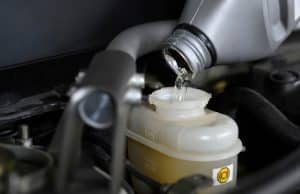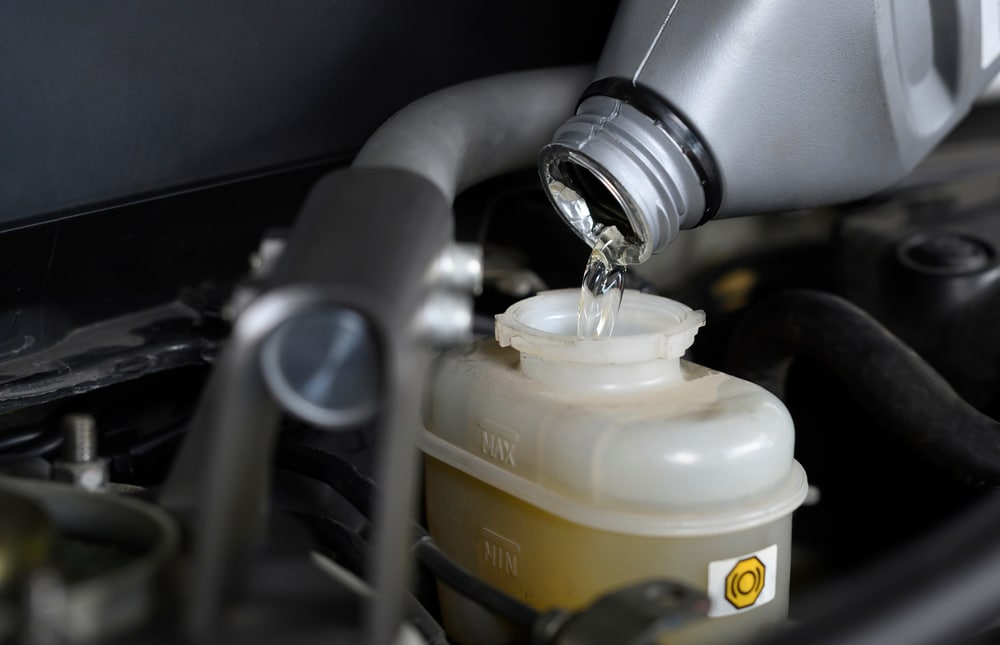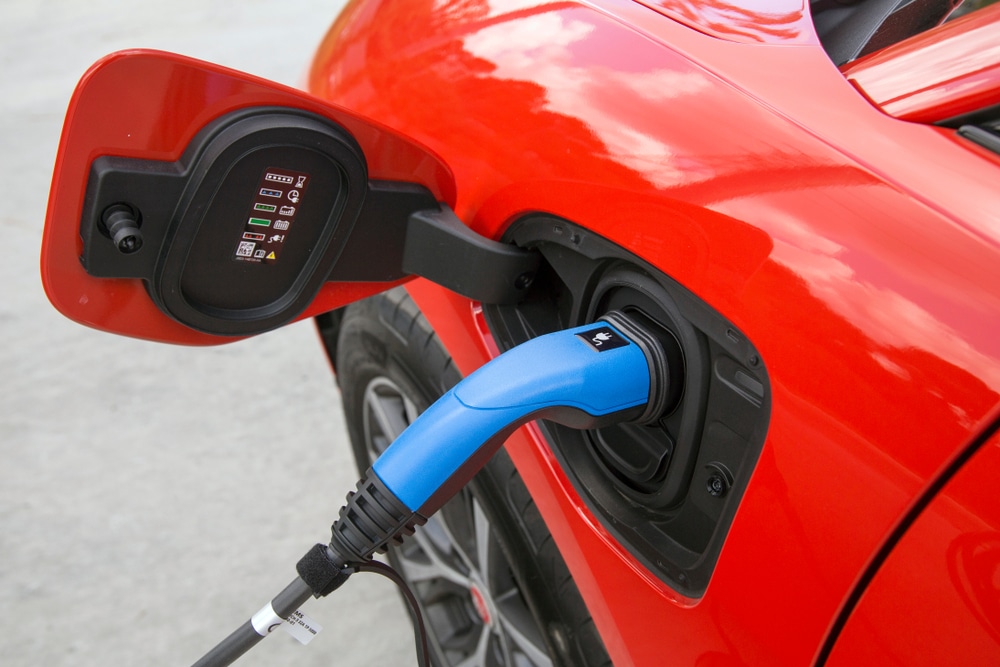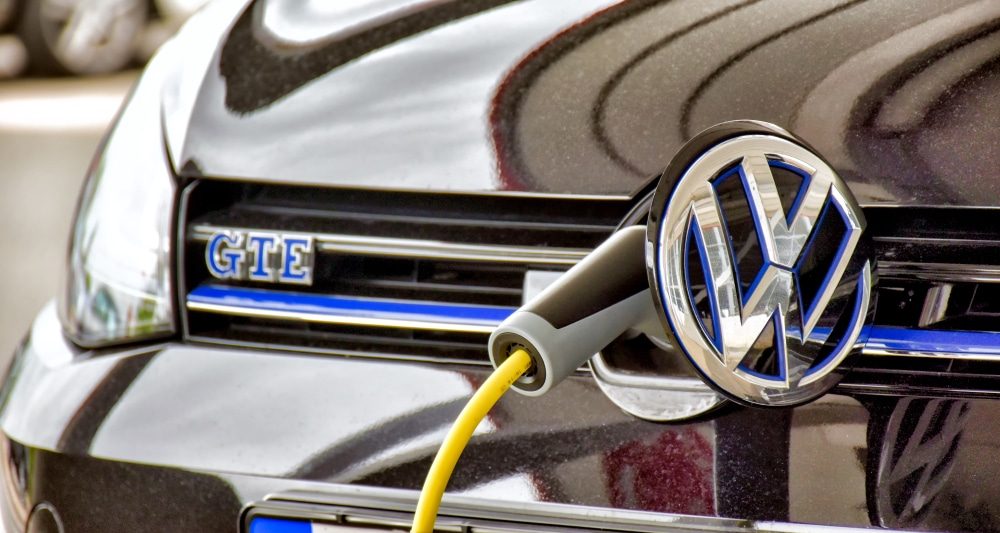Brake Fluid
Brake fluid might not grab your attention like brake pads or brake discs, but it’s just as vital for safe driving. Over time, it absorbs moisture and loses its hydraulic strength, which can quietly reduce braking performance – especially during emergency stops.
That’s why timely brake fluid checks and replacements are essential to maintaining reliable stopping power.
At Smith’s of London in Croydon, we provide main dealer-level brake fluid servicing at better value, ensuring your brakes remain sharp and dependable. Drivers across Beckenham and Coulsdon trust us to keep their braking systems in top condition. Call 020 8674 3377 today to arrange a professional brake fluid inspection or change.

The Purpose of Brake Fluid
Brake fluid plays a vital role in the braking process. It ensures a strong, reliable pedal feel, shields sensitive components, and keeps your braking system working effectively at all times.
As a hydraulic fluid, brake fluid transfers the pressure from your foot on the brake pedal directly to the wheels. Its incompressible nature allows it to deliver force quickly and precisely. When you brake, the fluid pushes pressure through the brake lines, activating your brakes by causing callipers or wheel cylinders to press the brake pads onto the brake discs or the shoes against the drums.
Beyond transferring pressure, it also helps prevent internal corrosion and keeps parts well-lubricated. Because it must withstand extreme heat and high operating pressure, having the right fluid in the right condition is crucial for dependable braking performance.
That’s why having the correct fluid, in good condition, is so important. Brake fluid is something you can’t afford to overlook in a system where safety depends on split-second reactions.
How Brake Fluid Keeps Your Braking System Working
Here’s how brake fluid makes your braking system work.
When you press the brake pedal, you’re not physically pushing a mechanism onto the wheels. Instead, the pedal action engages a master cylinder that compresses the brake fluid. This pressure is transmitted through the brake lines to the callipers or wheel cylinders, depending on the vehicle’s design.
This pressure pushes the brake pads or shoes firmly against a brake disc or drum, creating the friction needed to bring the car to a stop. When brake fluid is clean and properly maintained, it stays incompressible, which means it transmits this force instantly and evenly, giving you the smooth and predictable braking feel you rely on.
Its role doesn’t stop there. Brake fluid must perform under high heat and extreme pressure, while enabling advanced systems such as ABS and electronic stability systems, which rely on brake fluid to function properly..
Brake Fluid is a small part of the wider braking system, but one that handles a significant task every time you brake.
Finding the Brake Fluid Reservoir
If you lift your car’s bonnet and look near the rear of the engine bay, often on the driver’s side, you’ll see a small, semi-transparent container – this is the brake fluid reservoir.
A rubber diaphragm or cap seal inside the reservoir prevents air and moisture from entering. This is essential since brake fluid slowly absorbs water, which can reduce its effectiveness if ignored. The translucent cap lets technicians check fluid levels with a quick glance. However, assessing the colour and overall quality of the brake fluid requires the cap to be removed.
Even though it’s a minor-looking component, the reservoir is an excellent barometer of your braking system’s condition. Any sudden drop in levels or change in colour should be handled by professionals, such as our experienced team here at Smith’s of London.
DOT 3, DOT 4, DOT 5: What You Should Know
There are many different brake fluid types, and each has a specific role in maintaining safe braking. Using the wrong type could lead to internal wear or reduced stopping power.
Here are the main types explained:
- DOT 3 Brake Fluid – Glycol-based with a lower boiling point. Common in older cars that don’t have modern braking systems. It absorbs moisture over time.
- DOT 4 Brake Fluid – The most widely used today, offering a higher boiling point than DOT 3. It’s designed for advanced braking setups such as ABS and traction control. It also absorbs moisture, requiring regular replacement.
- DOT 5 Brake Fluid – A silicone-based fluid that doesn’t absorb water. It’s often used in classic or specialised vehicles but is incompatible with DOT 3 and 4 systems. Mixing them can lead to damage.
- DOT 5.1 Brake Fluid – Delivers high performance like DOT 5 but has a glycol base similar to DOT 3 and 4, making it suitable vehicle that require a higher thermal performance.
Brake fluid types vary, and the one your vehicle needs cannot be varied. Using the wrong one can cause damage. At Smith’s of London in Croydon, we always use the correct brake fluid for your vehicle to ensure maximum safety and performance.
The Main Risks to Your Brake Fluid’s Condition
Brake fluid is essential to safe braking, but it doesn’t remain effective forever. Over time, heat, water absorption, and contamination all reduce its ability to perform properly. If it isn’t changed when needed, your braking system may become unpredictable or unsafe during sudden stops.
Here are the main risks to your brake fluid:
Moisture Absorption – Brake fluid is hygroscopic, which means it naturally absorbs moisture from the air, even through tiny openings in hoses and seals. As the moisture level increases, the boiling point drops, raising the risk of vapour lock. Vapour lock causes bubbles to form in the fluid, which reduces its ability to transmit hydraulic pressure.
Heat and Pressure – The heat generated during braking puts stress on the fluid, breaking it down chemically over time. This reduces its stability and can cause it to fail under heavy braking conditions.
Chemical Stability and Additives – Brake fluid contains additives to prevent rust and protect seals. As these additives degrade, components inside the braking system become more vulnerable to corrosion and wear.
Contamination – Tiny particles from seals, rust, or the wrong type of fluid can contaminate the system, reducing braking precision and damaging components.
Old or Incorrect Fluid – If the wrong grade of fluid is used, or if the fluid is not changed as scheduled, systems such as ABS and traction control may not function correctly, making emergency braking less reliable.
At Smith’s of London in Croydon, we carefully check brake fluid quality during routine servicing, ensuring it’s replaced when required to maintain safe, consistent braking.
How to Spot Brake Fluid Issues Before They Escalate
Brake fluid doesn’t have a specific warning light, so spotting the early signs of trouble is essential. Routine servicing at Smith’s of London in Croydon will ensure your brake fluid is checked, topped up, and replaced as needed to prevent any hidden faults from affecting your safety.
Here are some signs that indicate it’s time for a brake fluid check:
- Soft or Spongy Pedal Response – If your brake pedal feels less firm or needs more pressure than usual, it may mean that air or moisture is disrupting the fluid’s ability to transmit pressure.
- Brake or ABS Warning Lights – Some vehicles will display a warning light if brake fluid levels are low or if the pressure is uneven. This requires immediate attention.
- Burned or Harsh Smell – A chemical or burnt odour from the brake fluid, noticeable when the reservoir cap is removed, is a sign the fluid has deteriorated.
- Discoloured Fluid – Brake fluid should be pale or clear. If it looks dark, murky, or contaminated, it’s time to have it replaced.
If you notice any of these issues, call Smith’s of London for a thorough brake fluid inspection to keep your brakes responsive and reliable. Our expert technicians are ready and waiting to take your call.
The Risks of Neglecting Brake Fluid Changes
Brake fluid is easy to forget about, but ignoring it can lead to serious safety risks. As it deteriorates over time, its performance quietly declines, often without any obvious signs until braking power is compromised.
When moisture builds up in the brake fluid, its boiling point drops, making it less capable of transmitting pressure. This can result in a softer pedal feel, longer stopping distances, or brake fade under heavy use. In severe cases, vapour bubbles form within the fluid, preventing hydraulic pressure from reaching the brake pads or shoes effectively — a problem that can cause sudden brake failure during an emergency stop.
Old or contaminated brake fluid also contributes to corrosion inside the braking system, damaging seals and key components like callipers. These issues can lead to expensive repairs that could easily have been avoided.
At Smith’s of London in Croydon, we follow manufacturer guidelines to test and replace brake fluid as part of our professional servicing. This ensures your braking system remains reliable and responsive at all times.
Why Drivers Trust Smith’s of London for Brake Fluid Maintenance
Brake fluid is crucial to your braking system, but it naturally absorbs moisture and loses its ability to perform over time. If it’s not replaced when required, this can result in longer stopping distances, a spongy pedal, or even complete brake failure under heavy use. Regular brake fluid checks are the best way to prevent these risks and keep your vehicle safe.
At Smith’s of London in Croydon, we offer expert brake fluid checks and changes, following the exact specifications set by your car’s manufacturer. Our skilled technicians inspect your brake fluid during every service and replace it when necessary, ensuring your braking system remains sharp and reliable. You’ll get main dealer quality at a far more competitive price.
Why book with Smith’s of London?
✔ Manufacturer-recommended brake fluid used every time
✔ Expert technicians with extensive experience
✔ Brake fluid checks included during routine servicing
✔ All work backed by a 12-month parts and labour guarantee
If you’ve noticed a change in your braking feel or it’s been a while since your last fluid replacement, call 020 8674 3377 today to arrange your brake fluid service.



